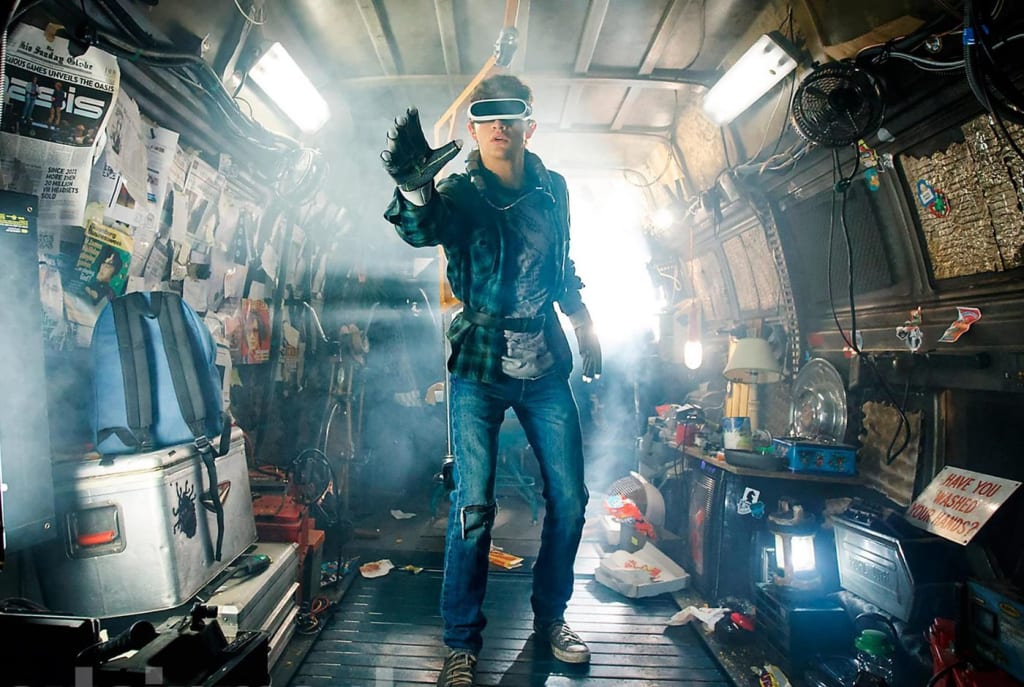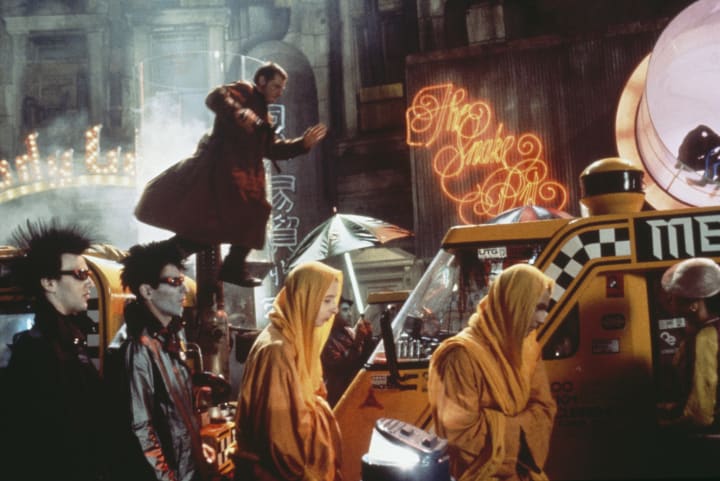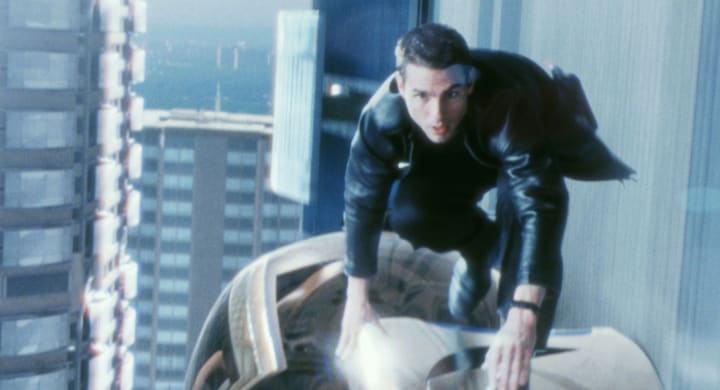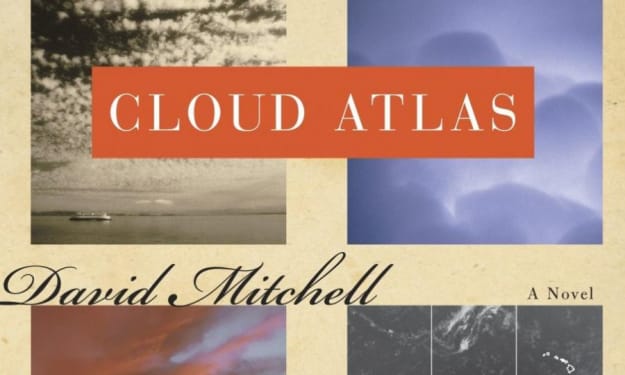A Filmmaker's Guide to: Cyberpunk
Film Studies (Pt.23)

In this chapter of ‘the filmmaker’s guide’ we’re actually going to be learning about literature and film together. I understand that many of you are sitting in university during difficult times and finding it increasingly hard to study and I understand that many of you who are not at university or not planning on it are possibly stuck of what to do, need a break or even need to catch up on learning film before you get to the next level. This guide will be brief but will also contain: new vocabulary, concepts and theories, films to watch and we will be exploring something taboo until now in the ‘filmmaker’s guide’ - academia (abyss opens). Each article will explore a different concept of film, philosophy, literature or bibliography/filmography etc. in order to give you something new to learn each time we see each other. You can use some of the words amongst family and friends to sound clever or you can get back to me (email in bio) and tell me how you’re doing. So, strap in and prepare for the filmmaker’s guide to film studies because it is going to be one wild ride.
Cyberpunk

What is it?
A sub-genre of Sci-Fi in which the dystopia surrounds the fact that technology has finally oppressed the human race.
So...basically what's happening right now, right?
Cyberpunk in literature is pretty easy to see. Everything is very much oppressive of humans and we always get references and look backs to George Orwell's 1984 as a point of call for how humans are treated by the computers. Possibly the most famous cyberpunk book of our times is Ernest Cline's "Ready Player One" in which a VR game is oppressing the human race by coaxing them to partake in a pretty impossible task with not much background.
Another great cyberpunk book is "Do Androids Dream of Electric Sheep" by Philip K Dick. It shows us how the tech world has practically oppressed to the point of humans having no basic rights apart from those that are directly connected to the tech world. If you really think about this, it is not only damaging but you can really see it happening now.
Other books you can read are those other ones by Philip K Dick including "A Scanner Darkly" (which is brilliant) and the works of William Gibson who is famous for his subversive attempt at blended cyberpunk with thriller, violence and so much more. I feel like a lot of Gibson's works are a lot deeper when you read them around the second time so definitely give those a go (especially "Count Zero" which I think is his most famous, correct me if I'm wrong).
What about in film?

A lot of cyberpunk in the cinema is adapted from novels, the most recent again is the adaptation of "Ready Player One" but again, it is a bit bright and meaningful for cyberpunk. One of the darker and more faithful to the cyberpunk sub-genre is "Blade Runner" and "Blade Runner 2049" as the more recent one in the series.
Let's have a look at a watchlist:
- The Matrix Films (I-IV) (1999-present)
- Cloud Atlas (2012)
- Total Recall (1984) / (2012)
- Minority Report (2002)
- 2001: A Space Odyssey (1968)
So, how does that go?
Cyberpunk = Sci-Fi sub-genre in which technology oppresses humans to some degree, sometimes even causing harm and death
Cyberpunk novels = As cyberpunk was more of a 1980s and 1990s sub-genre, we are now at the point of that oppression and it has become more metaphorical and realistic for our own times that we initially planned
Cyberpunk films = Are far more successful when they are darker and more oppressive of the humans since our own times reflect a similar thing. Also, they tend to make more of a difference when the technology is a little far away from our own time, still seeming futuristic.
Further Reading:
- Clarke, A (2018). 2001: A Space Odyssey. USA: Orbit.
- Cline, E (2012). Ready Player One. USA: Arrow
- Dick, P.K (1999). A Scanner Darkly. 2nd ed. USA: Gateway
- Dick, P.K (2007). Do Androids Dream Of Electric Sheep?. 2nd ed. USA: S.F Masterworks.
- Mieville, C (2011). The City and the City. UK: Pan
About the Creator
Annie Kapur
200K+ Reads on Vocal.
English Lecturer
🎓Literature & Writing (B.A)
🎓Film & Writing (M.A)
🎓Secondary English Education (PgDipEd) (QTS)
📍Birmingham, UK






Comments
There are no comments for this story
Be the first to respond and start the conversation.